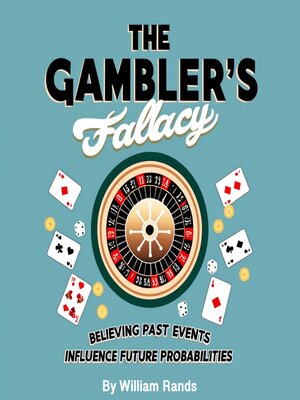The Gambler's Fallacy
audiobook (Unabridged) ∣ Believing Past Events Influence Future Probabilities
By William Rands

Sign up to save your library
With an OverDrive account, you can save your favorite libraries for at-a-glance information about availability. Find out more about OverDrive accounts.
Find this title in Libby, the library reading app by OverDrive.



Search for a digital library with this title
Title found at these libraries:
| Library Name | Distance |
|---|---|
| Loading... |
The Gambler's Fallacy, also known as the Monte Carlo fallacy, is a common cognitive bias in which individuals believe that past events can influence future random outcomes. It is particularly evident in gambling scenarios, where players wrongly assume that a string of bad or good luck must be followed by a reversal. The core principle of the fallacy lies in the misinterpretation of probability. In reality, the odds of a specific event occurring remain constant, regardless of what happened in the past. This misunderstanding can lead to poor decision-making and increased risks.
The roots of the Gambler's Fallacy can be traced back to the early days of gambling, particularly in games of chance such as roulette. A notable historical example occurred in 1913 at the Monte Carlo casino, where the ball in a roulette wheel landed on black 26 times in a row. Spectators, believing the outcome was due for a change, began betting heavily on red. However, the fallacy is that each spin of the wheel is an independent event, and the probability of landing on red or black remains the same, regardless of previous outcomes. This phenomenon was named after the casino, where many people lost large sums due to their misguided beliefs.
In the context of games like roulette or coin flips, every spin or toss is independent, with no memory of past results. A fair coin, for example, has a 50% chance of landing heads or tails on each toss. However, when gamblers fall prey to the Gambler's Fallacy, they believe that if the coin lands heads several times in a row, the chances of tails increase with each successive flip. This misunderstanding can be disastrous, especially when it leads to reckless betting behavior.







